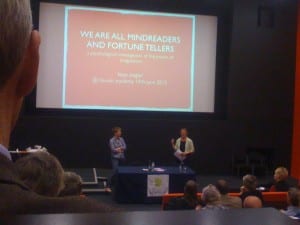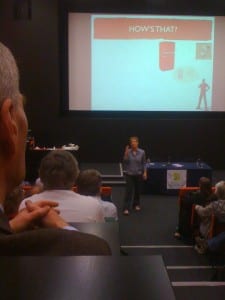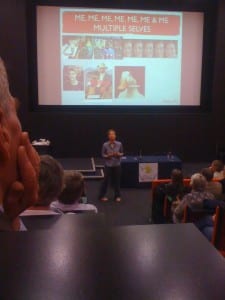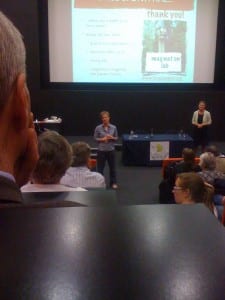Lincoln Academy Guest Lecture
location EMMTEC
purpose Public lecture on my research
more questions? email me fziegler@lincoln.ac.uk
lecture abstract.
Imagination is not just fun and children’s games but underpins many of the key skills we need for navigating our social world. Other people’s thoughts and minds are not visible but at some stage in development children take a mental leap to attribute other people with these invisible mental states. This results in the skill to ‘get into the heads of others’, allowing for meaningful disentanglement of communication, being discrete, tactful, empathic and also understanding and predicting other people’s behaviour.
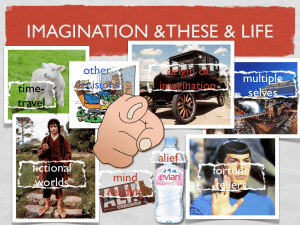 Seeing into the future is important when we make decisions, because we have to imagine what the outcome of a decision is going to be and which one will make us happier. But why, if imagination is so powerful, do we often fail to see things from someone else’s point of view and get some small and some big decisions quite wrong? The development, the success and the failures can tell us much about the workings of the mechanism itself.
Seeing into the future is important when we make decisions, because we have to imagine what the outcome of a decision is going to be and which one will make us happier. But why, if imagination is so powerful, do we often fail to see things from someone else’s point of view and get some small and some big decisions quite wrong? The development, the success and the failures can tell us much about the workings of the mechanism itself.
Here are some further reading materials on key topics covered in the lecture.
Alief and belief
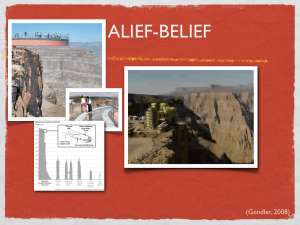 The concept of alief (why are you scared on the Grand Canyon skywalk?) was introduced by Tamar Szabo Gendler. The key paper was published 2008 in the Journal of Pilosophy, and you can read it here: http://pantheon.yale.edu/~tgendler/documents/aliefbeliefjphilfinal.pdf
The concept of alief (why are you scared on the Grand Canyon skywalk?) was introduced by Tamar Szabo Gendler. The key paper was published 2008 in the Journal of Pilosophy, and you can read it here: http://pantheon.yale.edu/~tgendler/documents/aliefbeliefjphilfinal.pdf
Social Function of Mindreading
An excellent paper on the Social Function of Intellect was published by Nicholas Humphrey. It is highly readable and you can find it here http://www.humphrey.org.uk/papers/1976SocialFunction.pdf
Daydreaming
Paul Bloom’s book of How pleasure works is an exciting journey through the things that are pleasures in our lives – and why.
Decision making
One of the most important people in decision making research is Nobel laureate Daniel Kahneman and his most recent book Thinking fast and slow covers the background and cutting edge research on decision making – and why we are bad at it.
For copies of the articles on my research making decisions for others, please email me.
How does mindreading develop?
A recent review paper presents my ideas of how children develop the skills to get into the heads of others. Email me for a copy of a recent review paper.
Spontaneous perspective-taking
My PhD research on children’s perspective-taking in narratives is available in a short article. Email me for a copy.
The paper on spatial perspectives is currently undergoing revision. If you email me I will send you a copy.
Multiple Selves
The idea of multiple selves has been described by several psychologists and philosophers. Human mind is perhaps composed of multiple selves: the self that chooses in advance and the self that faces the consequences of that decision (e.g. Ainslie, 1992). The Implicit notion is that future selves are treated like other people. In the sense that a person as succession of different but overlapping selves, and future selves are therefore like others (Parfit, 1971).
Imagination and schizophrenia
The philosopher Greg Currie has written about schizophrenia as a disorder of the imagination in the book Recreative Minds. You can find more information on this here

